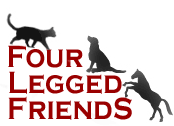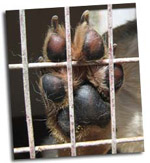


Dog Breeds
![]() Dog
Breeds Boards
Dog
Breeds Boards
![]() Alaskan
Malamute
Alaskan
Malamute
![]() Bouvier des Flandres
Bouvier des Flandres
![]() Boxer
Boxer
![]() Dachshund
Dachshund
![]() Dalmation
Dalmation
![]() Doberman
Doberman
![]() German
Shepherd
German
Shepherd
![]() Pug
Pug
Puppies!
![]() Pup
Stages
Pup
Stages
![]() Picking
from Litter
Picking
from Litter
![]() Bring Puppy Home
Bring Puppy Home
![]() Bad
Puppy
Bad
Puppy
![]() Housetraining
Housetraining
![]() Becoming
Alpha
Becoming
Alpha
Rescue
![]() Dog
rescue
Dog
rescue
![]() Adopt A Dog
Adopt A Dog
![]() Dog Rescue UK
Dog Rescue UK
![]() Interview at a Pound
Interview at a Pound
![]() A Life in Chains
A Life in Chains
![]() Adopt
a Dog Board
Adopt
a Dog Board
Saying
Goodbye
![]() Letting
Go
Letting
Go
![]() Rainbow Bridge
Rainbow Bridge
![]() Death
of Owner
Death
of Owner
Interesting links
![]() Dog
Directory
Dog
Directory
![]() Cats
Cats
![]() Horses
Horses
![]() Animal
rescue
Animal
rescue
![]() Pet
Insurance
Pet
Insurance
![]() About us
About us
![]() Site Map
Site Map
![]() uno card rules
uno card rules
Growl, baby!
Skye, my beautiful, sweet natured boxer growled at my son the other day. We've had her for six years, one year longer than we've had kids. In all that time she has occasionally barked at strangers and clearly doesn't like joggers running towards her family. I know her bark is all bluster and no bite but I have never heard her growl.
Skye was sitting on the patio steps, leaning against the wall, head nodding to her chest as she drifted off to sleep. Clumsy Sam came slam-blasting up the steps and ploughed against Skye to give her a cuddle. Skye gave a disgruntled growl and shook him off then went and lay down under the table.
I ignored Skye for the moment but immediately reprimanded my son. Though it was a gentle telling off, it was firm and to the point. Animals are not large teddy bears!
Shortly afterwards I went out to the patio and pottered about. Skye watched me from under the table where she'd laid down to escape from my son.
When I told a friend about the little incident, she was horrified that I had reprimanded my boy but not the dog. "Wouldn't you growl if one of the kids leapt on you when you were having a nap?" I asked her.
"Yes, she said, "but I don't bite!".
But that is the point you see. Dogs growl to communicate a warning in much the same way as you might give a couple of verbal warnings before resorting to timeout, toys in the bin or a slap on the behind depending on your parenting methods.
A dog that has been punished for growling gives no warning at all. Chances are they have also missed the opportunity to learn bite inhibition. Growl repression and no bite inhibition makes for a very dangerous dog and certainly not one I'd want near my kids.
If the dog cannot express annoyance or show that a child is causing it pain by a low warning growl, it may suffer in silence until the situation becomes intolerable and it snaps - in more ways than one.
In the instance described above, I was pleased to hear Skye growl. That is not to say however that a growling dog should not be taken seriously for it is a method of communication intended to convey a warning. If your dog growls at you or the kids often or has started to do so after changes in the household you must pay attention and ask yourself what the dog is telling you.
He could be in pain or be being over-protective. He could be insecure or afraid. Any of these instances can lead to a dog bite so you must take a hard look at the situation and steps to correct it.
|
||
